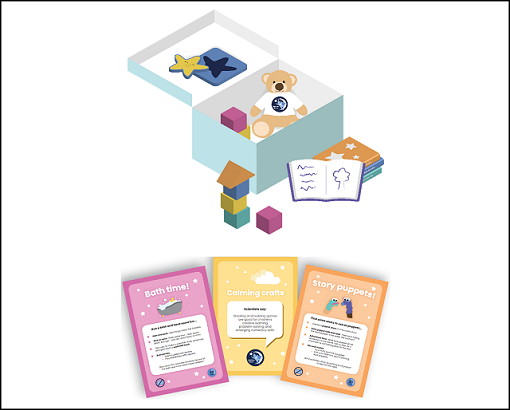New Study Highlights Importance of Screen-Free Hour Before Bed for Toddler Sleep Improvement
It is widely acknowledged that poor sleep in early childhood is associated with negative outcomes, including health issues, developmental delays, and behavioural challenges. The Bedtime Boost study, funded by the Nuffield Foundation, is the first RCT to support paediatric advice recommending the reduction of toddler screen time before sleep.
Researchers from the University of the Arts London (UAL), Birkbeck, Queen Mary University of London, University of Bath, and King’s College London enlisted families with toddlers aged 16 to 30 months from across London.
One hundred and five families, all of whom routinely used screens with their children before bed, were randomly assigned to one of two groups. In the intervention group, parents were instructed to eliminate all screen time in the hour preceding bedtime, replacing it with a Bedtime Box containing non-screen-based activities (such as calming play, reading, or puzzles) over a seven-week period. The control group engaged in similar activities without any specific mention of screen time. Toddler sleep was monitored before and after the intervention using a wearable motion tracker.
Parents in the intervention group successfully removed screen time before bed, resulting in improved sleep quality for their toddlers, including more efficient sleep and fewer night awakenings.
Study lead, Professor Tim Smith from UAL’s Creative Computing Institute, explains: “Previous correlational studies have shown that the more screen time toddlers have, the worse they sleep. But it was not possible to know if the screen use was causing sleep problems or vice versa. The Bedtime Boost study provides the first preliminary evidence that removing toddler screen use before bed may lead to better sleep. Further work is required to replicate these effects in a larger number of families.”
The intervention was co-developed with families and early-years professionals, including representatives from the Early Years Alliance, National Childbirth Trust, The Sleep Charity, and children’s centre staff, ensuring the programme was as inclusive as possible.
Professor Rachael Bedford, Head of the Queen Mary Child Development Lab and co-lead on the project, adds: “We worked closely with parents and early years practitioners to ensure the Bedtime Boost intervention was low-cost and easy to implement. Results suggest the trial was highly feasible for parents, with all of the intervention families completing the trial. However, further work is needed to understand how the varied ways in which families use screen media may influence these effects.”

